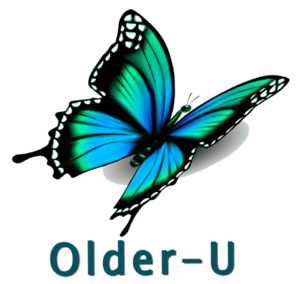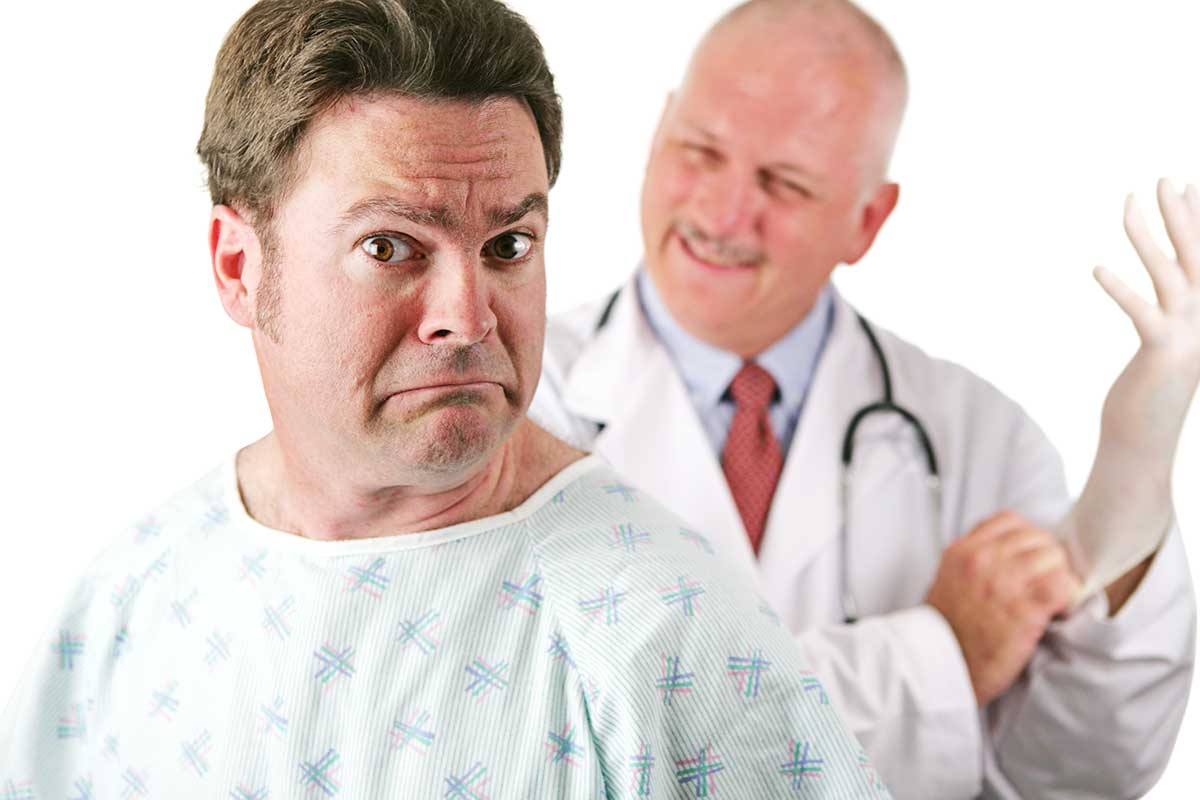As we get older, day by day our bodies start to show the signs of aging, and unfortunately, there is no way of avoiding it completely. Health conditions such as slightly weaker vision and a small amount of hearing loss are quite normal in older men. Wear and tear is to be expected, but our bodies are complicated machines and we need to look after them. In particular, look out for and recognize the early signs of illnesses.
Here are a few common health conditions and symptoms a man, as he gets older, should keep an eye on while he moves through the aging process of life. Hopefully looking towards a longer and healthier life than our forbears.
What Are Main Things That Men Need To Look Out For As We Get Older?
- Blood Pressure – High Blood Pressure can be the cause and a symptom of many health conditions including stroke.
- Prostate Cancer – High mortality rate of not picked up early.
- Heart Disease – One of the biggest killers in modern society, but can be helped greatly by medical intervention.
- Diabetes – Caused by the body’s inability to control blood sugar.
- Arthritis – painful joints, bones, and tendons.
- Testicle Cancer – Usual more associated with younger men, but can still happen to older men too.
- Dizziness – Often know as Vertigo a quite common debilitating, short-lasting condition.
- Sexual Health – Sexually transmitted diseases and more prevalent in older men than people realize.
- Osteoporosis – A weakening disease of the bones that can affect men and women.
- Stroke – A dangerous condition in the brain that needs to be acted on very quickly.
- Bowel & Bladder issues – Tests are recommended to pick up early any signs of cancer.
- Mental Health – Depression and anxiety can become an issue as men get older.
- Memory Loss & Alzheimer’s Disease – Seek medical help as soon as possible, if any of the symptoms like memory loss are recognized.
Heart Disease and Older Men
Heart disease is the leading cause of death in men over the age of 65 and many men suffer from it at a much earlier age. Because your heart is working extra hard to pump blood around your body as you get older, the risk is higher for heart complications.
Initial signals such as chest discomfort, shortness of breath, lightheadedness, and nausea need to be recognized, as these are common signs of a heart attack. So be sure to contact your doctor or medical professional immediately if you are experiencing any chest or heart pains.
The risk of heart disease is much lower for those who have an active lifestyle, do not smoke, and eat a healthy diet. Be sure you are getting your cholesterol levels checked regularly, and at least twice a year if you are over 65.
The Common Signs of a Heart Attack
- Pressure, pain, tightness, or a squeezing and, or aching sensation in your chest or your arms that may spread to your neck, jaw, or back.
- Nausea, indigestion, heartburn, or abdominal pain.
- Shortness of breath.
- Cold sweat.
- Fatigue.
- Feeling Lightheaded or suddenly dizzy.
Symptoms may last for 30 minutes or longer and aren’t relieved by rest. You can have a heart attack with no symptoms at all. This is more common if you have diabetes.

Prostate Cancer and Older Men
Getting older is one of the most significant risk factors for men and prostate cancer. The prostate is a small gland in the pelvis, found only in men. Prostate cancer is the most common cancer in men in the Western World. The main function of the prostate is to produce a thick white fluid that creates semen when mixed with the sperm produced by the testicles. Cancer of the prostate usually develops quite slowly, so there might not be any signs for many years.
What are the main signs of prostate cancer?
- A painful or burning sensation during urination or ejaculation.
- Needing to rush to the toilet.
- Frequent urination, particularly at night.
- Difficulty stopping or starting to urinate.
- feeling that your bladder has not emptied fully
- Sudden erectile dysfunction.
- Blood in urine or semen.
These symptoms do not always mean you have prostate cancer. Many men’s prostates get larger as they get older because of a non-cancerous condition called prostate enlargement.
The earlier prostate cancer is detected, the greater the chance of successful treatment and cure. Make sure you get anything you discover checked by a medical professional.
What are the tests for prostate cancer in older men?
There’s no single test for prostate cancer. All the tests used to help diagnose the condition and are completed at a medical center or hospital. These prostate cancer tests have benefits and risks, so you should discuss them with your doctor.
The first test a doctor normally carries out is; a physical examination of your prostate (known as a digital rectal examination, or DRE. The infamous finger in the rectum, where he checks for irregularities in the size and shape of the prostate gland. Don’t worry, although it may be a little embarrassing, it is usually quick and pain-free.
A blood test, called a prostate-specific antigen (PSA) test, measures the level of PSA and may help detect early prostate cancer, may be carried out. In some hospitals, men are not routinely offered PSA tests to screen for prostate cancer, useless they show other symptoms, as results can be unreliable. If you have a high PSA as well as other symptoms, you may be offed an MRI scan.
Happily, for the older men with early-stage prostate cancer, the treatment may not be necessary immediately. And your doctor may suggest they just want to keep an eye on things and depending on your age and overall health, some options may involve only careful monitoring of your condition.
It is important to seek professional medical advice of you think you might be suffering from prostate problems.
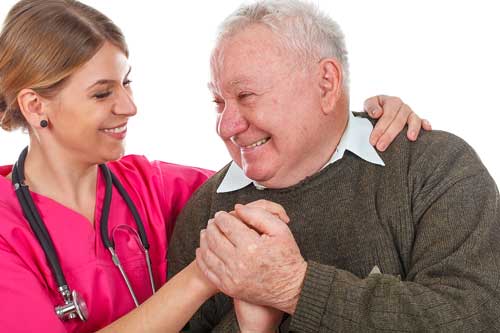
Osteoporosis in Men
Particularly as we men grow older, so do all the bones in our bodies. New bone tissue tends to be created at a much slower pace because old bone tissue must be absorbed first. This means our bones can become weaker and thinner.
Osteoporosis is quite common among older men, it’s simply a disease where the bones become very brittle and can even break if there is intense pressure on the bone such as a fall.
There are no noticeable symptoms of osteoporosis, so check in with your doctor about a bone density test (DEXA scan), in order to check on your bone health.
What Can Older Men do fight against osteoporosis
Calcium and vitamin D can help keep our bones strong, to help prevent the onset of osteoporosis and these can be taken in a number of food supplements.
Here are some food types also said to be good for bone health:
Dairy products: milk, yogurt, cheese, and calcium-fortified cottage cheese. Green leafy vegetables: broccoli, kale, collard greens, dried figs, turnip greens, and mustard greens. Fish: canned salmon and sardines with the bones. Nuts: almonds and Brazil nuts.
Also, light exercise like walk, yoga, or tai chi is said to be helpful.
Diabetes in Older Men
Diabetes can affect a man at any age, but the risk increases with time. Around 25% of people above the age of 65 have diabetes in the United States, for example.
Diabetes simply means blood sugar is not regulated through the body and is typically way too high. If left untreated, diabetes can lead to even bigger health risks such as a stroke, blindness, or heart disease.
What are the symptoms of diabetes on older men?
- Going to the toilet a lot especially at night.
- Losing weight without trying to.
- Genital itch
- Blurry eyesight
- Extreme hunger or thirst
- Cuts and grazes take longer to heal.
- Feeling very tired all the time
If you think you may have diabetes you should contact your medical practitioner as soon as possible. Initially, they will most likely do a urine test and then a blood test.
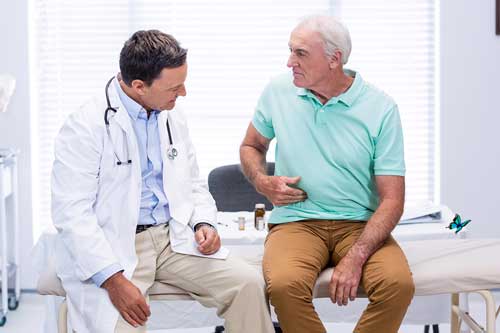
Trouble Balancing and Dizziness – Vertigo
As we age, balance is something that does not always age well with us. Many men as they get older suffer from chronic dizziness, which is usually caused by inner ear problems. This dizziness often referred to as vertigo, is most likely to happen if you have had a recent bout of cold or flu.
Some other issues causing the off-balanced feeling could be certain medications. It is important to check with your doctor if you are feeling dizzy or unable to maintain balance throughout the day. Mostly, it can be helped with medication, but your doctor will want to rule out that it is nothing more serious.
This dizziness can feel particularly unpleasant with the sensation the room is going round, which is then often compounded by being nauseous caused by a type of motion sickness.
How can you treat yourself for the dizziness when it occurs?
Lie down, move very slowly and carefully until the dizziness passes. Drink plenty of fluids, plain water is best. Avoid high caffeine drinks like tea and coffee, as well as alcohol.
Arthritis In Older Men
The word arthritis is used to describe pain, swelling, and stiffness in a joint or joints. Arthritis is not a single condition and there are several different types.
What Are The Main Types Of Arthritis?
Osteoarthritis; basically wear and tear to our joints and bones over the years. The joints have poor lubrication due to worn or damaged cartilage and this often causes bone malformations.
Gout; a type of inflammatory arthritis that can cause very painful swelling in joints. It typically affects the big toe, but it can also affect other joints in the body. Often seen in comedy routines of the past and associated with an old man who drinks too much port.
Rheumatoid Arthritis; a type of inflammatory arthritis. It is what is known as an auto-immune condition, where the body’s immune system attacks itself, creating a stiffening and swelling of the joints. This can lead to swollen and tender joints, swelling and stiffness in joints in the morning that lasts for longer than half an hour, severe tiredness, also called fatigue, and a general feeling of being unwell. Rheumatoid Arthritis is usually treated with drugs to lower the overactive immune system.
Spondyloarthritis; describes a number of conditions that cause pain and swelling, mainly around the joints of the spine. With these conditions, there is inflammation of small pieces of connective tissues, called entheses. These are tough little cords that join either ligaments or tendons to bones.
There are far too many types of arthritis to list within the scope of this article and more about arthritis and older women can be found here.
One out of every five men suffer from arthritis, and a third of those men are over the age of 65. Bones begin to scrape against each other because of the loss of fluid and cartilage in a joint, leading to painful movements.

Some types of food are said to be good for arthritis;
It is particularly important to eat a healthy, balanced diet if you have arthritis. Eating healthily will give you all the nutrients you need and help you maintain a healthy weight and not put too much weight on those joints.
Your diet should consist of a variety of foods from all 6 food groups. These are:
- fruit and vegetables
- starchy foods – such as bread, rice, potatoes, and pasta.
- oily fish and or fish oil like cod liver oil.
- meat, eggs, and beans.
- milk and dairy foods.
- foods containing fat and sugar.
It may well be worth avoiding processed foods, such as baked goods and prepackaged meals & snacks, red meat, and fried foods. Take it easy on the alcohol too.
Consult with your medical expert or doctor if you’re experiencing joint pain and see if there’s a treatment option for you.
Bowel & Bladder issues
Bathroom issues increase with age. It happens, it’s normal, and it’s okay. Constipation and incontinence are more common as we get older, so guys don’t feel embarrassed if this happens to you. It’s completely normal and your doctor will have seen patients with these sorts of conditions many times before.
Constipation is caused by dehydration, lack of physical activity, and lack of fiber. If you’re suffering from chronic constipation, visit your doctor and see if you need a change in diet.
Regular stool tests for blood is recommended to pick up the early signs of any cancer.
Also, any sudden change in your bowel and bladder functions, that last more than a few days, need to be reported to your doctor as soon as possible.
With bladder issues, it will be worth reading our paragraphs on prostate issues back up the page.
Memory Loss & Alzheimer’s Disease
Our memory ages with us. It is normal. The hippocampus which is the area of our brains associated with memories deteriorates with age. Also, as we age, blood flow to the brain decreases which impairs memory.
If you or someone around you is noticing your memory declining at a more rapid rate, it’s time to get evaluated by your doctor. Occasional forgetfulness like misplacing your keys is okay. Forgetting to pay bills, finding it difficult to make choices, and even getting lost can be signs that something a little more serious is happening.
Research suggests that changes in the brain, with this disease, can occur up to ten years before a person starts to show symptoms. The symptoms are usually mild at the beginning and gradually get worse over time.
Some, not all, of the dementia symptoms, may include:
- difficulty remembering recent events, whilst having a good memory for past events.
- very poor concentration.
- difficulty recognizing things or people.
- very poor organization skills.
- confusion and disorientation.
- slow, muddled, and or repetitive speech.
- withdrawal from family and friends.
- problems with making decisions.
Medication can slow the progression of the disease and manage its effects.
It is important to seek medical help as soon as possible if any of the symptoms are recognized.
It is said by many knowledgeable people of the subject, that “Brain Training” could be a way of keeping your brain alert as we get older. Games, puzzles, and working on problems will keep your brain working is said to be a good idea. The “use it or lose it” principle.
Testing For Testicular Cancer
Cancer of the testicle is one of the less common cancers in older men and tends to mostly affect men between 15 and 49 years of age, so there is one thing where getting older gives us an edge, but we still need to check now and again.
What should my testicles look and feel like?
Most men’s testicles are usually about the same size, though often one can be slightly bigger than the other. It’s also normal for one testicle to hang lower than the other.
The testicles should feel smooth, without any bumps or lumps, firm but not hard. You may feel a soft tube at the back of each testicle, it is quite normal and called the epididymis.
What to look for when you check your testicles:
- a hard lump on the side or front of a testicle
- enlargement or swelling of a testicle
- an increase in firmness of a testicle
- pain or discomfort in a testicle or in the scrotum
- any unusual difference between one testicle and the other
If you notice any changes or anything unusual about your testicles, you should talk to a qualified medical professional immediately.

Blood Pressure and Older Men
Persistent high blood pressure can increase your chances of getting a number of very serious and possibly life-threatening health conditions:
- Heart disease & Heart Attacks
- Peripheral arterial disease.
- Aortic aneurysms.
- Kidney disease.
- Vascular dementia.
What Does Your blood Pressure Result Mean?
When you have your blood pressure taken, you will be given two numbers, a top number, and a bottom number.
- Systolic blood pressure. This is the first number is the highest level your blood pressure reaches when your heart beats, forcing blood around your body.
- Diastolic blood pressure. The second number is the lowest level your blood pressure reaches as your heart relaxes between beats.
Blood pressure is measured in millimeters of mercury (mmHg). If the first number is 120 and the second number is 80, this would be written as 120/80 or ‘120 over 80’.
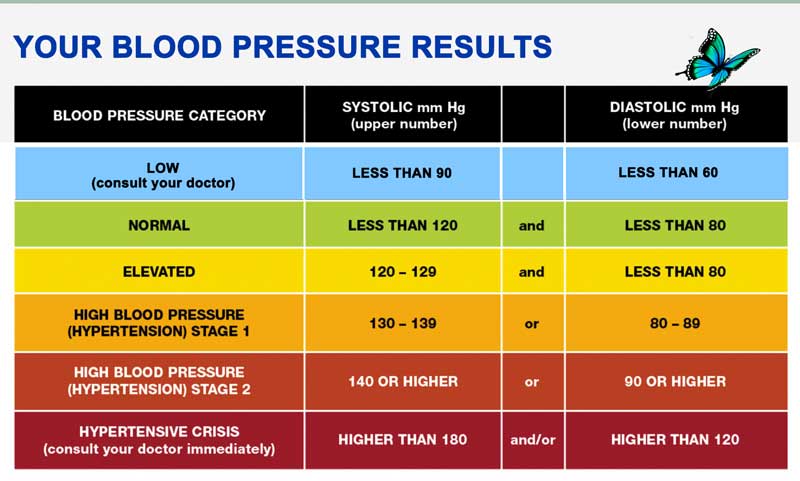
As we get older our blood pressure usually increases and a good blood pressure result for a man in his 60s will be approximately 130/85.
The Dangers Of Strokes As We Get Older
What Are Common stroke symptoms found in men?
If you’re an older man and unsure whether your symptoms are that of a stroke, you should still call your local emergency services. Once paramedics arrive on the scene, they can assess your symptoms and begin treatment, if needed.
If any of the below comes on suddenly:
- trouble seeing in one or both eyes.
- numbness or weakness of your face and your limbs, which occurs most times on one side of the body.
- trouble speaking or understanding people, which then relates to confusion.
- severe headache with no known cause.
- dizziness, trouble walking, or loss of balance or coordination.
Being that time is of the essence, getting people to the hospital quickly is important in have had a good outcome in the case of a stroke. This is a health message put out by the NHS in the UK, to teach people the quickly recognize a stroke.
The main symptoms of stroke can be remembered with the word FAST:
Face – the face may have dropped on one side, the person may not be able to smile, or their mouth or eye may have dropped.
Arms – the person with suspected stroke may not be able to lift both arms and keep them there because of weakness or numbness in 1 arm.
Speech – their speech may be slurred or garbled, or the person may not be able to talk at all despite appearing to be awake; they may also have problems understanding what you’re saying to them.
Time – it’s time to dial the emergency services immediately if you see any of these signs or symptoms.
As with all these things and a good diet and lifestyle will assist in and hopefully avoid a stroke happening to you.
Older Men and Sexual Health
Sexual dysfunction can affect men of all ages, but of course, it is especially common amongst older men. The most common problems related to sexual dysfunction in older men include ejaculation disorders, erectile dysfunction, and lack of sexual desire (libido). Treating underlying causes is often a way of correcting sexual problems.
What causes sexual dysfunction in older men?
- Low testosterone levels.
- Prescription drugs like antidepressants and high blood pressure medicine.
- Blood vessel disorders such as hardening of the arteries and high blood pressure.
- Stroke or nerve damage from surgery.
- Diabetes.
- Smoking.
- Alcohol and drug abuse.
Erectile dysfunction (ED) Is Common In Older Men
Erectile dysfunction (ED) is the inability to get and keep an erection for sexual intercourse. ED is quite common, and studies show that about one-half of older men over age 50 are affected.
What are The Causes of ED Erectile Dysfunction?
- Diseases affecting blood flow such as hardening of the arteries.
- Disorders of nerves.
- Stress, relationship problems, depression, and performance anxiety.
- Penis injury.
- Chronic illness such as diabetes and high blood pressure.
- Unhealthy habits and lifestyle; such as smoking, too much alcohol consumption, overeating, and general lack of exercise.
Contact your doctor if you have any of these issues, don’t worry ED is quite common and he has heard it all before. As there may be some underlying condition you may be required to have a physical examination.
Medication is frequently used to assist with ED. The drugs work by increasing blood flow to the penis to help improve sexual function;
Sildenafil (Viagra®), vardenafil (Levitra®), and tadalafil (Cialis®) are safe and effective for most older men. Do consult your doctor first, especially if you have issues with blood pressure or your heart. Do take professional medical advice before deciding to take any of these drugs.
Sexually Transmitted Disease and Older Men
With the availability and more common use of ED drugs such as Viagra®, older men are enjoying more sex than ever before, with older men still being sexually active way into their seventies. Unfortunately, along with all this sexual activity, so does the prevalence of sexually transmitted diseases (STI).
Surprisingly, older men seem to be at greater risk from sexually transmitted diseases, than their younger counterparts. This is in part due, to the fact that older people are far less likely to use a condom, probably because the woman getting pregnant is less likely to be an issue.
It is very important to have an occasional STI checkup, especially if you have a new partner.
Getting an STI and HIV test is extremely simple and carries much less of a stigma these days and could do as part of your overall health checkup.
Finally, it is recommended that you always use a condom, unless you’re in a monogamous long-term relationship.
Mental Health Concerns With Older Men
Mental health is often misunderstood by people who have not suffered it. The common mental illnesses such as depression and anxiety and the prevalence amongst older men may often be higher than among younger men.
Older men often are reluctant to seek help for mental health services. This is due to stigma, misinformation, and false beliefs about aging and some men go without adequate care for their depression and other psychiatric illnesses. It is important for you to seek help and support if you feel you have a problem.
Apart from getting professional help, there are a few things you can do to help yourself; good diet exercise will be you a better chance of overcoming issues; wellness practices like Yoga and Tai Chi have often proved to be helpful; Do not isolate yourself, get out and about as much as you can and talk to your friends

Going for tests and a complete check-up
Our intention has not been to scare you, but as we get older, we just cannot avoid some illnesses and certain conditions coming our way. Apart from eating well, keeping ourselves are fit as we can. It is a good idea to have a check-up now and then with a hospital clinic or doctor. There are a whole variety of types of check-ups and places to have them, so we have listed a few below.
Don’t Take Our Word For It!
Always Consult a Medical Professional at The First Signs Of A Health Symptom Or Issue.
More On Keeping Healthy
We Need Our Sleep at Any Age. Sleep, in general, is of utmost importance to us. The benefits of a good night's sleep resound for both younger and older people alike, rejuvenating their mind, body...
Staying healthy and keeping fit, is so important as we get older. We want to feel our best at any age. We have tips that can help you cope with getting older and living life to the fullest. As we...
